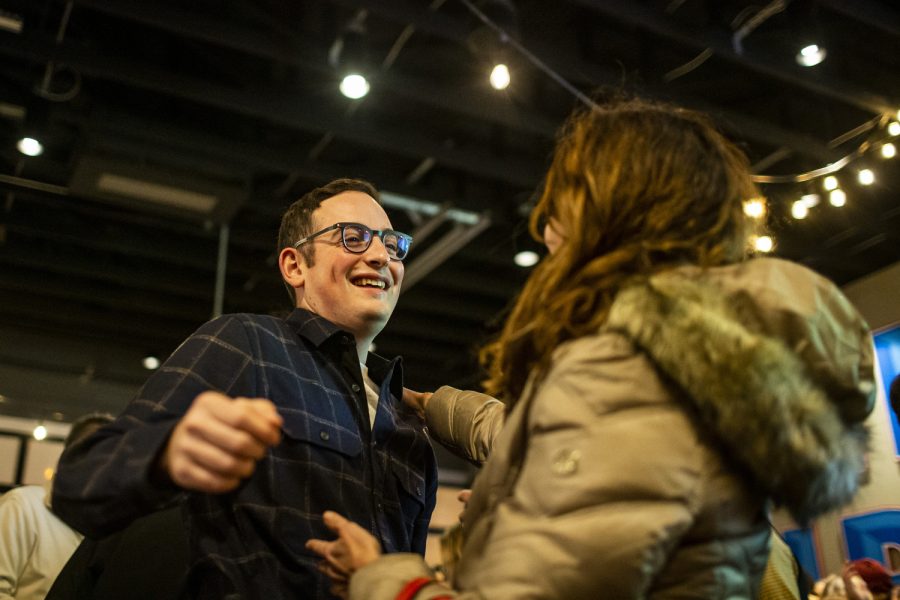Opinion | Racial diversity matters at all levels
History is being made through an increase of diversity in newly elected officials.
Iowa House District 90 seat Adam Zabner hugs a supporter during a watch party on Election Day at Big Grove Brewery and Taproom in Iowa City, on Tuesday, Nov. 8, 2022. Adam Zabner won the election for District 90 on Tuesday after running unopposed.
November 30, 2022
Following this year’s midterm election, Iowa and Johnson County brought more racial and ethnic diversity to the political field.
Four years before, the Iowa House had only four people of color.
Before Nov. 8, only 19 people of color had been elected to represent Iowa’s Legislature. Of these 19 legislators, 17 were Democrats and two were Republicans.
Izaah Knox, a newly elected Democrat in Iowa Senate District 17, is the second Black member to have a seat in the Iowa Senate, which consists of 50 members.
In an interview with Bleeding Heartland, Knox described his win as both exciting and overwhelming. He explained that although his win is an accomplishment, he sees more that needs to be done in Iowa. Knox finished the interview by saying how he was glad diversity and inclusion is continuing to expand throughout the state.
Iowa’s population is nearly 91.1 percent white. Though the percentage is high, it is no excuse for minimal representation.
Adam Zabner, a newly elected representative of House District 90, became the first Latino in the Iowa House. According to Zabner’s website, his mission is to provide equal opportunity to those of every background.
Zabner’s website also says he believes the state can take a lead when it comes to our country’s biggest problems. He plans to use his position to move Iowa towards positive change.
V Fixmer-Oraiz, elected as Johnson County Supervisor, is the first transgender, queer, and biracial person elected to the Johnson County government.
According to V’s website, they plan to ensure the surrounding community thrives in ways that will best benefit the county. Having attended the University of Iowa, they received a Master’s in Urban and Regional Planning, they plan to work towards a safer, more equitable, community for all.
As an Iowa resident and minority, it is important when talk of racial and ethnic inclusivity comes up in the political field. It is even more important when those that are a part of the minority are elected to represent the state that we reside in.
When minority members are not present in the House, non-minority members are the only individuals that get to make decisions on the topics that pertain to minority communities, such as issues of social justice and discrimination.
Without sufficient representation, there is room for a voice that uplifts those that are often underrepresented and pushed to the side. Minority communities need representatives that will understand and listen to them.
The state’s progress in diversity has been slow, but it has direction. With two new elected officials, we are already increasing racial and ethnic diversity within Iowa’s government.
Though the progress is good, there is still much to improve upon, as Knox had earlier explained. Throughout the following years, I hope to see this state further its role in positive inclusivity.
Columns reflect the opinions of the authors and are not necessarily those of the Editorial Board, The Daily Iowan, or other organizations in which the author may be involved.



